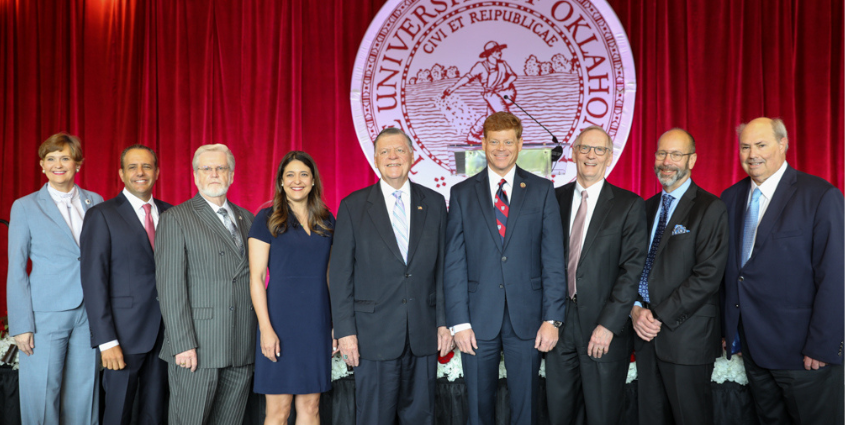Translational Research
Translational science research explores new ideas to address challenging health conditions with the goal of developing novel treatments that can apply directly to the care you and your loved ones receive from your doctors and other healthcare specialists.
Exploring Vascular Cognitive Impairment
The translational research laboratory at Oklahoma Center for Geroscience and Healthy Brain Aging focuses on cardiovascular and microvascular complications of aging. Specifically, researchers examine the clinically important but understudied role of microvascular mechanisms in the development of vascular cognitive impairment.
By exploring the relationship between neurovascular mechanisms and cognitive impairment, geroscience translational research aims to help preserve cognitive health in the high-risk geriatric population.
Innovative Research Techniques
Among the broad spectrum of innovative techniques available at the Oklahoma Center for Geroscience and Healthy Brain Aging Translational Research laboratory, researchers can investigate cerebromicrovascular function – how small blood vessels in the brain are affected by aging and age-related disease – through:
- Measuring cerebral blood flow
- Characterizing cognitive function in human subjects and animal models of age-related disease
Related Research Services & Resources
In addition to partnering with organizations such as Oklahoma Nathan Shock Center on Aging for certain core services, Oklahoma Center for Geroscience and Healthy Brain Aging supports translational researchers with a wide range of tools, services and resources for collaborative projects, including:
- Geroscience CoBRE – Center of Biomedical Research Excellence
- Basic science research
- Extensive research facilities and core services at the University of Oklahoma Health Sciences Center (OUHSC)
- Early-career research support
- T32 research training
Current Clinical Research Studies
Learn more about current clinical studies in translational research, such as:
- Translational analysis of cerebrovascular dysfunction in aging
- Evaluation of the role of cerebrovascular reactivity and neurovascular coupling in the development of cognitive impairment in older adults
- Understanding the mechanisms of cognitive impairment in peripheral artery disease
- The effect of noninvasive neurostimulation on endothelial function and cognitive performance in subjects with chronic heart failure and peripheral artery disease
- Mechanisms and clinical implications of cerebral microhemorrhages
Translational researchers also regularly seek volunteers to participate in ongoing and new studies.
Join Oklahoma’s Geroscience Professionals
As a clinician, educator or researcher working in the area of age-related disease, you’re encouraged to become a member of the Oklahoma Center for Geroscience and Healthy Brain Aging. Join our broad effort to better understand the aging process, reduce disease and improve quality of life as we all get older.
View our leadership team and find OU Health geroscience clinical faculty.
Contact us to learn how you can partner with Oklahoma Center for Geroscience and Healthy Brain Aging.
National Funding Support for Oklahoma
Oklahoma Center for Geroscience and Healthy Brain Aging is funded in part by an Institutional Development Award (IDeA) from the National Institute of General Medical Sciences of the National Institutes of Health.
-
OU Health Stephenson Cancer Center Achieves Renewal of NCI Designation
OU Health Stephenson Cancer Center at the University of Oklahoma Health Sciences has achieved renewal of its status as a National Cancer ...
Read More -
OU Health Sciences Center Researcher Discovers Behavior of Toxic Protein That Can Cause Alzheimer ...
Simply getting older is the primary risk factor for developing Alzheimer’s disease. There may not be a way to turn back time, but the research ...
Read More -
OU Health Opens New Memory Care Clinic in Oklahoma City
A new clinic for memory care is now open at OU Health in Oklahoma City for patients with cognitive and memory concerns, including Alzheimer’s and ...
Read More



